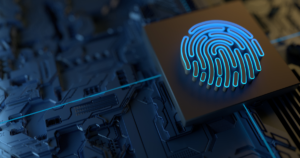
Businesses must be vigilant to stay ahead of hackers as they acclimate and adapt to new technologies and methods. Staying hyper-vigilant with information technology security is more important than ever against these cyber-terrorists. Cybersecurity is ever evolving; below are some steps your business can take to keep your data safe and secure in 2023.
New Privacy Laws to take effect in 2023
Five states have new comprehensive consumer privacy laws that will take effect in 2023. Many of these states have left the wording ambiguous, seemingly in an effort to require additional CPRA compliance requirements if it becomes necessary in the future. Companies should assess their compliance to these new data laws, even if they aren’t currently doing business in these five states, because more states will certainly jump on board with these new stringent regulations. Now is the perfect time to evaluate cybersecurity and how your company handles data, so you aren’t caught in a panic to meet these new requirements.
Speaking of cybersecurity, hackers have devised new methods of gaining access to sensitive data. Below are some types of cybersecurity attacks to be aware of.
Attacks aimed solely on cell phones and mobile devices
As smartphones become prevalent in today’s business world, threat actors have devised mobile-specific attacks aimed at gaining access to sensitive data, both personally and professionally. Employees can protect themselves (and the company) by using Multifactor Authentication, aka MFA, whenever possible. This adds a layer of security that makes it incredibly difficult for hackers to acquire the information they are seeking, especially if the MFA has tokens that are time sensitive. SMS-authentication is no longer enough to ward off hackers; MFA will be necessary against these types of attacks in 2023.
Ransomware as a Service is gaining popularity
Ransomware as a Service (RaaS) attacks are becoming more frequent and more expensive for companies as RAAS expanded 41% in 2022. RaaS is quickly becoming a popular method of creating data breaches for hackers; it works in similar fashion to the Software as a Service (SaaS) model with hackers paying a monthly subscription for the technology these ransomware gangs provide. RaaS operates just like a legitimate business model- they are highly professional, organized, efficient, and can be devastating to businesses on the receiving end of their attacks. RaaS ransomware gangs sell their “kits” they created with their vast hacking knowledge to lesser-skilled people seeking to harm your business. These attacks are human-operated, which means they target a particular company trying to gain access to specific information. Since a human is behind these attacks, they can find cybersecurity weaknesses by digging around deeply within your company’s network. You can protect your company from these types of attacks by requiring MFA, requiring end-users to use a complicated password, and training your end-users on how to spot phishing attempts via email.
Digital Supply Chain attacks are an increasing worry for business owners
Since the rise of cloud-based services, digital supply chain attacks have become more prevalent in today’s hacking world. Previously, these supply chains were hosted only locally (not connected to the internet), so digital supply chain attacks did not exist yet. With this technology still being relatively new, not all security flaws have been discovered yet.
Cloud Security is more important than ever
Digital Supply Chain attacks aren’t the only problem with cloud security; any piece of sensitive data available on the cloud is susceptible to security breaches. With most companies abandoning old-fashioned servers and moving to cloud-based hosting, the information hosted on the cloud can be accessed if there aren’t proper safeguards in place. The best method of warding off would-be cyber criminals is incorporating the Zero Trust method of security; this assumes that anyone and everyone is a threat to your data, and only users who can be verified are allowed access to this data.
For more information on cybersecurity and how to keep your business safe, contact us today.
